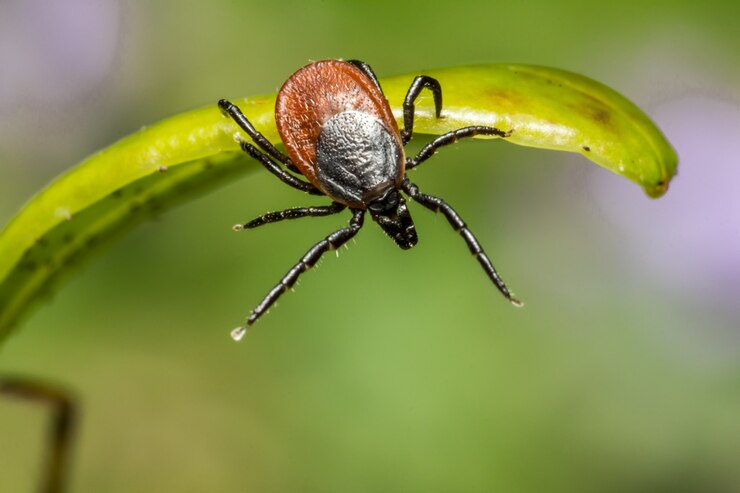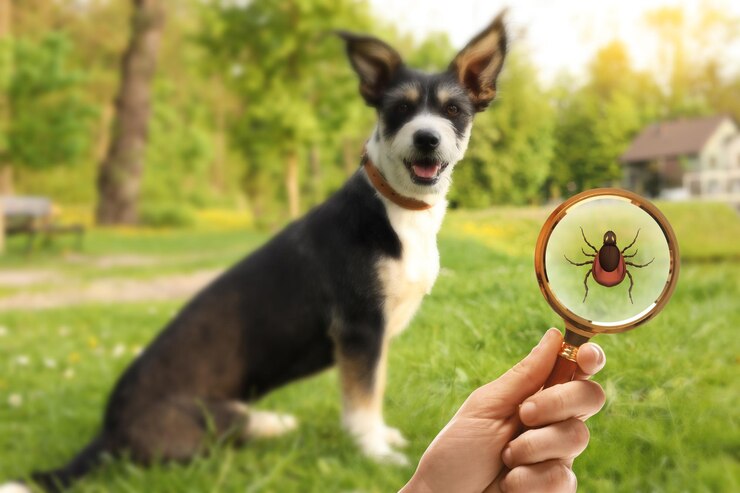Introduction
Fleas and ticks are common external parasites that affect pets and humans. These pests not only cause discomfort but also transmit dangerous diseases. Effective prevention and treatment are essential to maintaining the health of pets and their owners. In this article, we will explore the risks associated with fleas and ticks, methods for prevention, and the best treatment options available.
Understanding Fleas and Ticks
What Are Fleas?
Fleas are small, wingless insects that survive by feeding on the blood of animals and humans. They reproduce rapidly, with a single flea laying up to 50 eggs per day. Flea infestations can lead to severe itching, allergic reactions, and even anemia in pets.
What Are Ticks?
Ticks are arachnids that attach themselves to the skin of a host and feed on their blood. Unlike fleas, ticks remain attached for several days, increasing the risk of transmitting diseases such as Lyme disease, Rocky Mountain spotted fever, and ehrlichiosis.
The Dangers of Fleas and Ticks
Fleas and ticks are more than just a nuisance. They pose serious health risks to both pets and humans. Some of the dangers include:
- Skin Irritation and Allergies: Flea bites cause intense itching and allergic reactions, leading to hair loss and secondary infections.
- Anemia: Severe flea infestations can cause significant blood loss, leading to anemia in pets.
- Disease Transmission: Ticks carry bacteria and viruses that cause Lyme disease, anaplasmosis, and babesiosis.
- Tapeworm Infection: Pets that ingest fleas while grooming can become infected with tapeworms.
Preventing Fleas and Ticks
Prevention is key to keeping fleas and ticks at bay. The best strategies include using veterinary-approved treatments, maintaining a clean environment, and monitoring pets regularly.
1. Use Preventative Medications
Veterinarians recommend various flea and tick prevention products, including:
- Oral medications: Such as NexGard, Bravecto, and Simparica, which kill fleas and ticks quickly.
- Topical treatments: Like Frontline Plus, Advantix, and Revolution, applied to the pet’s skin monthly.
- Flea and tick collars: Seresto collars provide long-lasting protection.
- Shampoos and sprays: Effective for short-term flea control.
2. Maintain a Clean Home Environment
Keeping your home and yard clean helps prevent flea and tick infestations:
- Vacuum regularly: Pay attention to carpets, pet bedding, and furniture where fleas may hide.
- Wash pet bedding: Clean and sanitize pet bedding frequently.
- Use yard treatments: Apply pet-safe insecticides to lawns and outdoor areas where pets play.
3. Grooming and Regular Checks
Regular grooming and inspections help detect fleas and ticks early:
- Brush pets frequently: Use a flea comb to remove any pests.
- Check pets after outdoor activities: Inspect fur, ears, and paws for ticks.
- Bathe pets with flea shampoos: Regular baths with medicated shampoos help control infestations.
Treating Fleas and Ticks

If your pet already has fleas or ticks, immediate treatment is necessary. The following methods can help eliminate these parasites:
1. Flea Treatment
- Use fast-acting flea treatments: Products like Capstar kill fleas within hours.
- Apply flea medication: Monthly treatments such as Frontline or Advantage prevent reinfestation.
- Clean your home thoroughly: Wash all pet bedding, vacuum carpets, and use flea sprays.
2. Tick Removal
- Use tweezers or a tick removal tool: Grasp the tick close to the skin and pull it out steadily.
- Disinfect the area: Clean the bite site with antiseptic.
- Monitor for symptoms: Watch for signs of illness, such as fever or lethargy, and consult a veterinarian if needed.
Common Myths About Fleas and Ticks
Myth 1: Indoor Pets Don’t Need Flea and Tick Prevention
Even indoor pets are at risk, as fleas and ticks can enter homes through people or other animals.
Myth 2: Fleas Die in Winter
Fleas can survive indoors during cold months, making year-round prevention essential.
Myth 3: Natural Remedies Are Just as Effective
While some natural treatments may help, they are not as reliable as veterinary-approved medications.
Conclusion
Fleas and ticks are dangerous pests that can lead to serious health problems for pets and humans. Regular prevention, proper treatment, and maintaining a clean environment are key to keeping these parasites under control. By taking proactive measures, pet owners can ensure their furry friends stay happy and healthy year-round.
